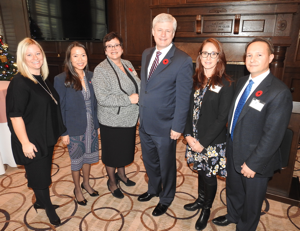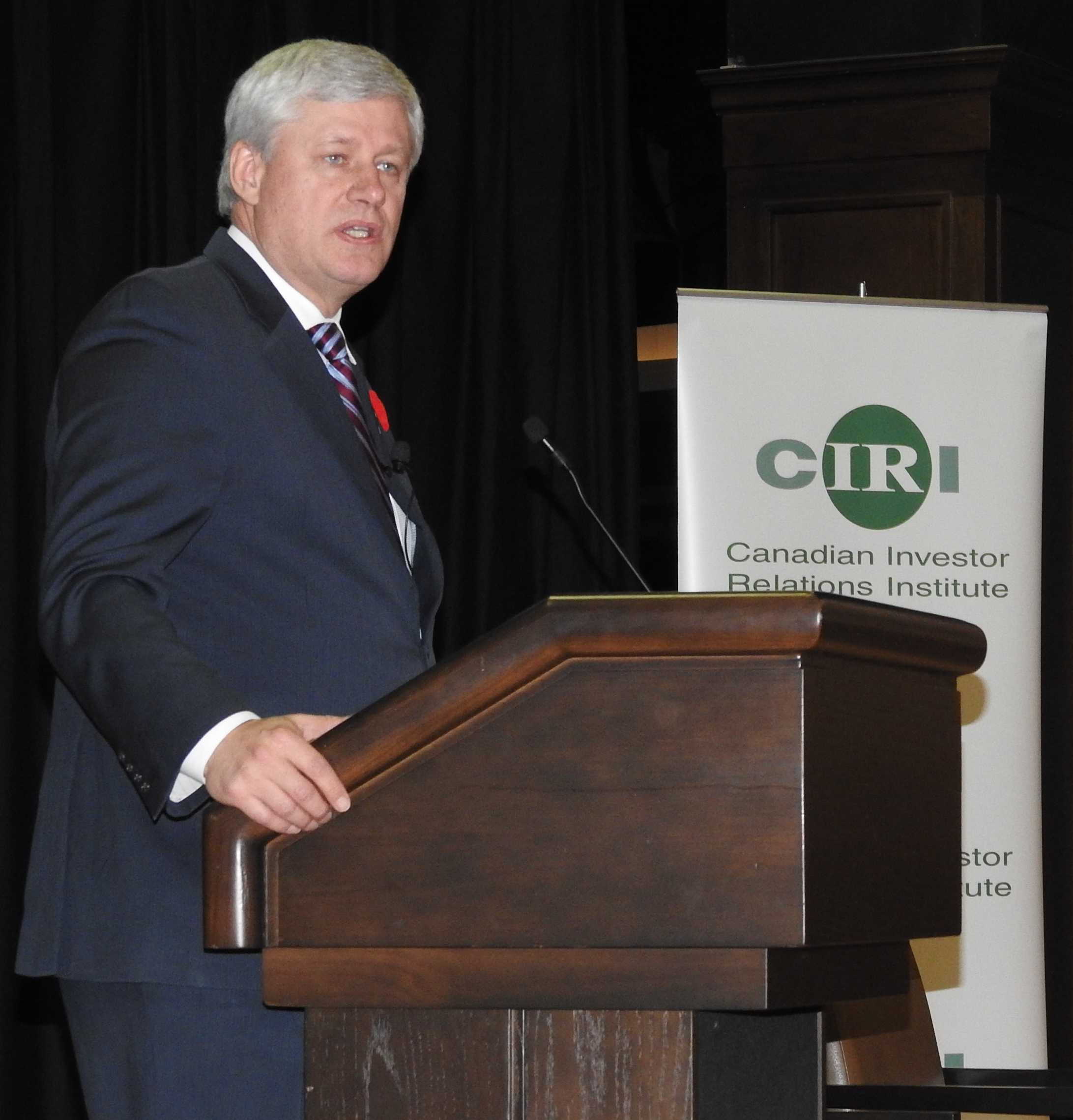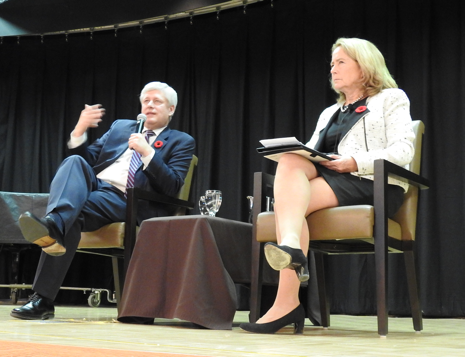CIRI Alberta was proud to host the Right Honourable Stephen Harper (22nd Prime Minister of Canada) in Calgary in November. The topic was Leading in a Low Growth World.
The former Prime Minister started by addressing recent political volatility in the West (i.e. Trump election, Brexit, the rise of populist parties in Europe). Much of this has been unexpected, unpre dicted (by traditional polling) and unorthodox (such as new networks and alliances).
dicted (by traditional polling) and unorthodox (such as new networks and alliances).
Harper recalled a conversation with Nobel Peace Prize recipient and former President of Poland Lech Walesa, who said the overthrow of communism in Europe was made possible by a lack of belief/trust in the system, new leadership (outside of the existing power structure) and technology. These factors have intensified over the past decade with the advent of smartphones and social media, Harper said.
He noted a sense of “profound dissatisfaction”, which is poisoning the political dialogue, and warned that this should not be treated as a passing fad. Increasing numbers of people no longer identify their interests with institutions they view as representing the elite, including media, governments and corporations, said Harper.
Relatively stagnant incomes in the West over the past decade have contributed to this state of affairs, as people watched trade balances (wealth) and job creation shifting in favour of emerging economies, he said. Harper noted that this shift has also had the positive effect of lifting more than a billion people out of poverty around the globe.
However, it has created a schism between those who have benefitted and those who have not, and created ideological divides (e.g. globalism versus nationalism), he said. Unfortunately, instead of working to identify and fix the underlying issues, many of the conversations have degenerated into name-calling, resulting in increased polarization, according to Harper.
Canada has been less affected, but not immune, he said. Harper noted that per capita income has risen in Canada over the past decade and that we did not suffer the same financial meltdown as our U.S. neighbour, in large part due to the strength of the Canadian banking system. However he is concerned that current economic policies could lead to economic stagnation and a major increase in public debt. If this happens, we should be prepared for “rapid change” in the social dialogue, said Harper.
A major strength of the Canadian economy is its diversity, and energy and natural resources have a significant role to play, he said. Demand for fossil fuels will continue to increase in many parts of the world and Canadian energy – well regulated, transparent and following the rule of law – should have an important role to play, he added. He also postulated that global underinvestment in oil and gas could lead to another oil price spike.
Harper said that we need to be more proactive in the early phase of project planning and approvals, building relationships with opinion leaders and community leaders well in advance of looking for regulatory approval. Once projects are approved, a small minority should not be allowed to block or delay these projects, he said.


